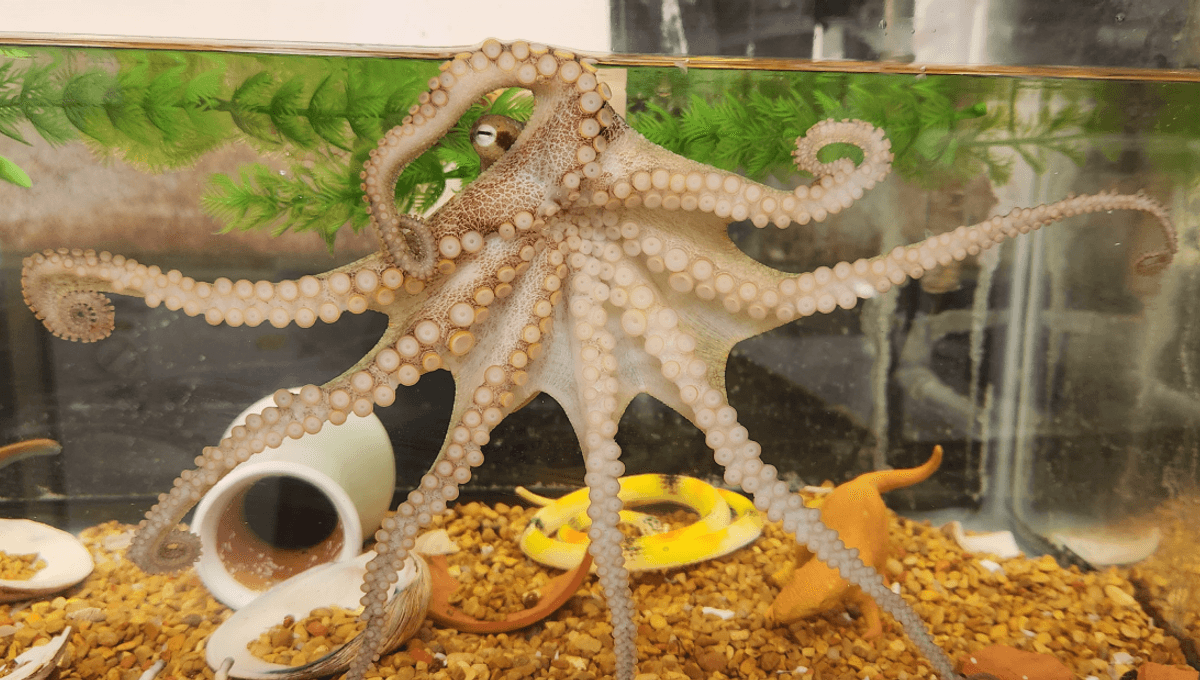
Never challenge an octopus to a popping and locking dance off, that’s what my grandad always said. With eight worm-like arms, they exhibit extraordinary dexterity and control, and now scientists have uncovered a curious feature of their nervous systems that makes it possible. With segmented axial nerve cords that link up to individual suckers, octopuses exhibit a spatial mapping system for their arms never seen before, one scientists have named the “suckeroptopy”.
“If you’re going to have a nervous system that’s controlling such dynamic movement, that’s a good way to set it up,” said Dr Clifton Ragsdale, Professor of Neurobiology at UChicago and senior author of the study, in a statement. “We think it’s a feature that specifically evolved in soft-bodied cephalopods with suckers to carry out these worm-like movements.”
Octopuses have eight arms and each arm has its own, extensive nervous system, which, combined, contain more neurons than are found in the animal’s brain. They are concentrated around the axial nerve cord (ANC), which encompasses all the suckers as it winds across the limb. Exactly how the ANC was connected to the musculature wasn’t clear, so a team studied the California two-spot octopus, Octopus bimaculoides, to find out.
By looking at thin strips of tissue samples taken from their arms, they observed how the neurons were packed into segments separated by gaps, known as septa. They also saw that each segment connected to a different muscle region from the next. It sounds weird, but it makes sense when you consider the arms all need to operate with local specificity while also moving synchronously as a whole appendage.
“Thinking about this from a modeling perspective, the best way to set up a control system for this very long, flexible arm would be to divide it into segments,” Cassady Olson, a graduate student in Computational Neuroscience who led the study, said. “There has to be some sort of communication between the segments, which you can imagine would help smooth out the movements.”
Those septa gaps were also where the nerves for each sucker departed from the ANC, connecting to their outer edges. This set-up could mean that the nervous system effectively creates a spatial map that incorporates the position of each sucker, which can be moved independently and are capable of tasting and smelling whatever they come into contact with.
Think of it like an arm covered in hands, tongues, and noses, and you see why it’s so important to have a strong grasp over their control. It’s this “suckeroptopy” for a spatial mapping system that enables octopuses to pop n’ lock their way around the environment, picking up valuable information as they go.
Furthermore, the team discovered that longfin inshore squid (Doryteuthis pealeii) also have segmented ANC, but only in the sucker-laden parts of their appendages. This indicates it’s a crucial adaptation for controlling sensory arms in cephalopods, which for octopuses make up the vast majority of their bodies.
The octopus is often quoted as the best model for alien life to be found on Earth, and as we learn more about their baffling arms for brains and circuity, the comparison seems more fitting than ever.
The study is published in Nature Communications.
Source Link: How Do Octopuses Control 8 Arms? Scientists Discover Strange Segmented Nervous System